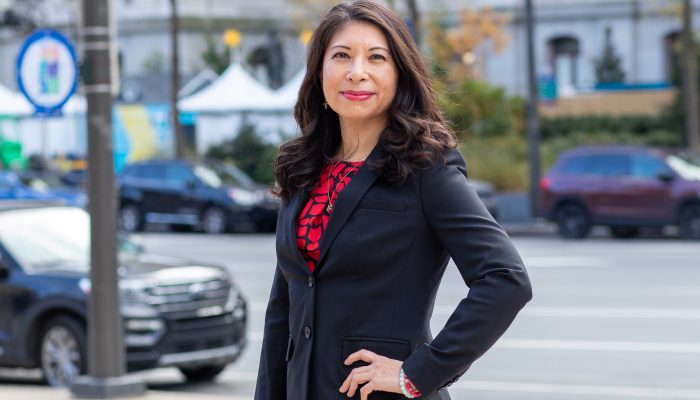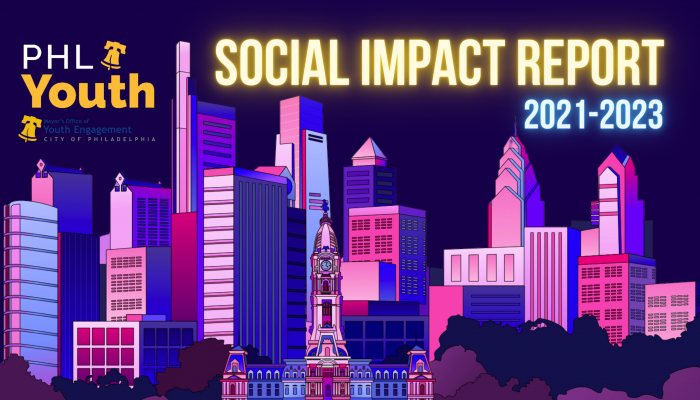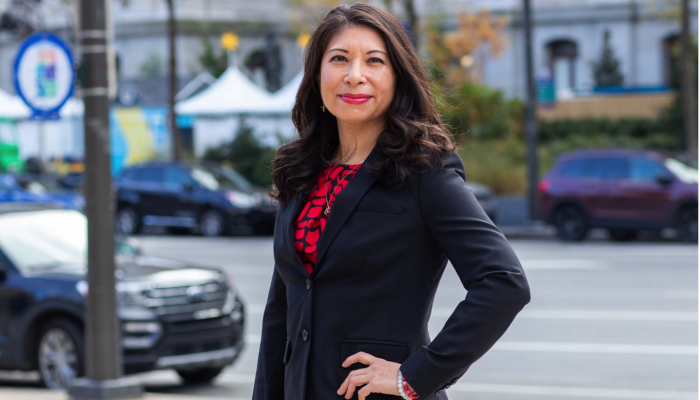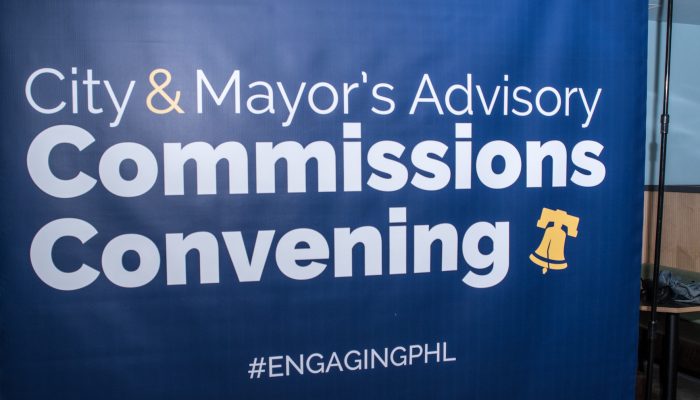The Mayor’s Office of Public Engagement is excited to have Romana Lee-Akiyama join the office as the new Director! Romana brings a rich history of non-profit, philanthropic and community-based engagement experiences to this role. Initially joining the City in March 2020 at the onset of the COVID-19 pandemic, Romana served as Director of Multicultural Affairs at the Office of Immigrant Affairs (OIA) before being promoted to Deputy Director in December 2020.
While at OIA, Romana led critical public engagement work with immigrant communities across Philadelphia. She successfully created a wide range of programming fostering communities across different ethnic and racial groups, and ensuring new immigrants are welcomed and supported as they transitioned to life in Philadelphia. Romana also established a City-wide and cross-departmental strategy group focused on addressing AAPI-focused hate and violence, an initiative that she continues to co-lead with the Philadelphia Commission on Human Relations and the Office of Immigrant Affairs.
Romana is a mission-driven leader who brings more than 20 years of experience in the nonprofit and philanthropic sectors to the role. Before joining the City of Philadelphia, she most recently worked at Eisenhower Fellowships from 2016 to 2020, where she led key strategic initiatives to drive global engagement across the network of 1,600 Eisenhower Fellows in more than 110 countries. Lee-Akiyama holds a BA in International Relations from Tufts University and both a Master of Social Services and a Master of Law and Social Policy from the Graduate School of Social Work and Social Research at Bryn Mawr College.
Saptarshi Dutt, OPE’s Communications & Engagement Coordinator, interviewed Romana to get to know her a little more.
SD: What drives you and your work?
RLA: Growing up with a father who was a political refugee, I became passionate early on about human rights and social justice. Seeing how much he lost, and how he had to recreate himself gave me insight into how immigrants and refugees experience life in the U.S., and what it’s like to live in the margins of society and grapple with racism, xenophobia and other “isms” of exclusion. That eventually translated into my commitment to creating more inclusive systems and a government that is responsive to the people it purports to serve.
SD: What are you most excited about coming into the Office of Public Engagement?
RLA: The Mayor’s Office of Public Engagement has a large team of seasoned experts in civic engagement, volunteerism, policy advocacy and systems change work. In many cases, we act as the “front door” to City government and the Mayor’s Office. We have the great privilege and honor of working with residents to better understand their needs and concerns, and provide an opportunity for them to create policy and program recommendations on how the City can be truly responsive to our various diverse communities. I’m looking forward to working hand-in-hand with leaders from within the Office of Public Engagement to strengthen existing feedback loops from our dedicated volunteers and community leaders to create a government that works for all. I’m also really excited about the Equitable Community Engagement Toolkit that will help the City and all of our various departments understand and build capacity, and make our systems more human-centered. This is a resource that is being co-created with the community, and has the potential to have a lasting impact on our municipal government beyond the end of Mayor Kenney’s term.
SD: What’s your vision for OPE in 2022? What are some of your key goals?
RLA: 2021 was a really tough year for so many of us. There was so much uncertainty, stress, violence and trauma. As a social worker, I can’t help but want to bring our residents to a point of respite, unity and wellness. Thankfully, our team in OPE has been on the forefront of work to address violence prevention, economic opportunity, and understanding trauma, all with a racial equity lens. We will continue to provide accessible and inclusive programming that raises awareness on the aforementioned issues, and partner closely with community leaders to close the gaps between our city government and impacted communities. We’ll do this by partnering with City administration leaders and departments leading key initiatives to help enhance their work, and at the same time, partner with and support community-based organizations that are seeing results in their efforts.
Lastly, Philadelphia is an evolving city. The 2020 Census showed us that racially we are different than we were ten years ago. The city’s growth was driven by gains in the Latino/a/x and Asian populations, with 36% and 39% growth respectively. As a city, when we think about our public, we should be thinking about the full spectrum of our residents. Our public engagement work will be more inclusive in our understanding of our residents and the programs that we create and execute.
SD: What is something that not everyone would know about you?
RLA: On my 40th birthday a few years back, I decided to sign up for a 200 hour yoga teacher certification. I’ve always been motivated to become a better version of myself and to invest in my own growth, and as a long-time yoga practitioner, I decided to give myself this gift. In my journey, yoga has helped me to heal from past injuries and trauma, and I’m grateful for this practice that keeps me well. I recommend yoga to everyone!
Another thing that is important to me to share is that at the end of 2020, I lost my father to COVID-19, as did many other Americans. To honor his life and work as a Philadelphia-based pioneering Chinese American immigrant artist and professor, I launched a legacy project to document his experiences and to promote his work to advance democracy and cultural freedom through the arts in the United States and abroad. I’m on Instagram! Follow me @chenlokleeartist.
You can connect with Romana via Linkedin or email her at romana.lee-akiyama@phila.gov.




